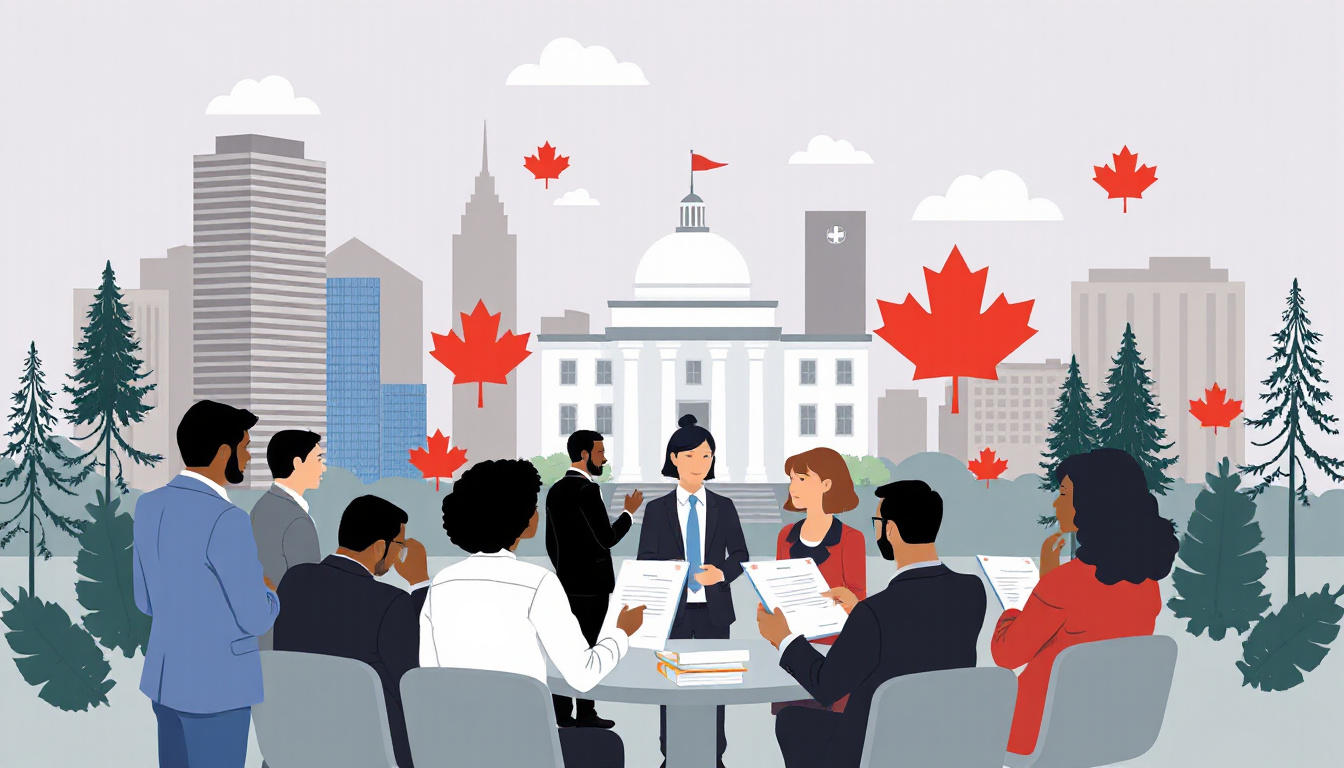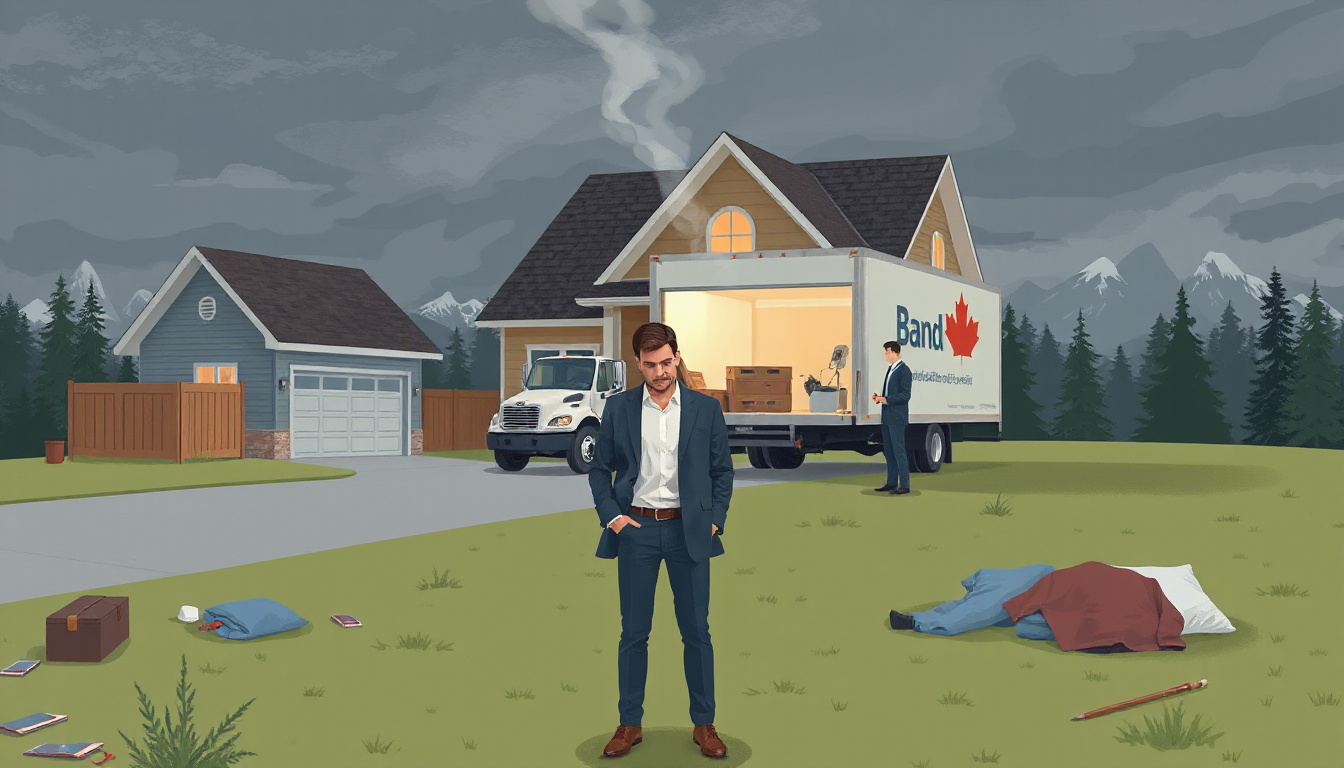When it comes to debt and financial struggles, the possibility of repossession can be overwhelming. In Canada, repossession laws govern how and when a lender can recover property when a borrower defaults on a loan. Understanding these laws is crucial for anyone facing possible repossession. This article will guide you through the intricacies of repossession laws in Canada, highlight key legislation, and provide steps to navigate potential repossession situations effectively. We’ll also discuss important resources for legal assistance and support to help you take control of your financial future.

Key Takeaways
- Repossession laws in Canada vary by province and can impact both consumers and creditors.
- Understanding the legal process is crucial when dealing with potential repossession of assets.
- Debtors should be aware of their rights and the steps they can take to protect themselves.
- Seek legal assistance to navigate complex repossession laws and understand personal obligations.
- Utilize community resources and support services to help manage the repercussions of repossession.
Understanding Repossession in Canada
## Understanding Repossession in Canada
Repossession refers to the legal process by which a lender takes back a property or asset from the borrower due to the latter’s failure to meet the repayment terms set out in a loan agreement. In Canada, repossession laws are largely influenced by provincial regulations, which can vary significantly. Generally, lenders have the right to repossess items like vehicles and equipment if you default on payments. However, they must follow proper legal procedures, including providing written notice and giving you a chance to rectify the situation. Understanding these laws is crucial for protecting your rights as a consumer while navigating the often stressful process of repossession.
Key Laws Governing Repossession
Navigating repossession laws in Canada can be complex, given the varying regulations by province and the specific circumstances surrounding repossessions. In general, the primary laws governing repossession include the Personal Property Security Act (PPSA) and the Bankruptcy and Insolvency Act (BIA). Under these laws, creditors must follow a specific process before they can reclaim property. This typically involves notifying the debtor, allowing for a grace period, and, in some cases, court intervention. Each province may have additional variations and consumer protections. For instance, Ontario’s Consumer Protection Act offers heightened safeguards, informing consumers about their rights regarding repossession. It’s crucial to consult local regulations and consider seeking legal advice to fully understand your rights and obligations during this process. Knowledge of these laws can empower you to navigate repossession situations more effectively.
‘In the middle of every difficulty lies opportunity.’ – Albert Einstein

Steps to Take When Facing Repossession
Facing the threat of repossession can be an intimidating experience for Canadians, whether it involves your vehicle, home, or personal property. Understanding the repossession laws in Canada is crucial to protecting your rights and interests. Here are some essential steps you can take when confronted with this situation.
###
1. Understand Your Rights
Familiarize yourself with the laws governing repossession in your province. Typically, creditors must provide proper notice of default and give you time to correct the issue before they can repossess your property. In Canada, these rights are outlined in respective provincial legislation governing secured transactions, often referred to as the Personal Property Security Act (PPSA).
###
2. Communicate with Your Creditor
It’s essential to maintain an open line of communication with your creditor. Inform them of your situation, be honest about your financial difficulty, and explore potential solutions. Often, a payment plan or temporary forbearance can be negotiated to help you avoid repossession altogether.
###
3. Seek Legal Advice
If you believe your creditor is not following the proper legal procedures or if you want to understand your rights more thoroughly, consult with a legal professional. A lawyer specialized in consumer protection or bankruptcy can offer invaluable guidance and assess your specific case.
###
4. Consider Your Options
If repossession seems imminent, assess your financial situation carefully. Consider options such as debt consolidation, negotiating with creditors, or even filing for bankruptcy. Engaging with a licensed insolvency trustee can provide you with options to manage your debts effectively.
###
5. Prepare for the Possibility of Repossession
Should repossession occur, know that you have the right to reclaim personal items not involved in the collateral agreement. You may also want to gather important documents and records relating to your ownership and payments on the property in case any disputes arise.
###
6. Stay Informed About Post-Repossession Rights
After a repossession, you still have rights, including opportunities to recover your property if you can pay the outstanding debts or challenge the repossession in court due to improper procedure. Being proactive and informed is key.
Learning how to navigate repossession laws in Canada empowers you to take action and safeguard your property effectively.
Resources for Legal Assistance and Support
Navigating repossession laws in Canada can often feel overwhelming, especially if you’re facing the prospect of losing your vehicle or property. However, understanding the legal framework and resources available for assistance can make the process easier. One of the best first steps is to consult with a legal professional who specializes in repossession or consumer debt issues. Organizations such as the Canadian Bar Association offer resources and referrals to qualified lawyers who can provide guidance tailored to your specific situation. Additionally, provincial legal aid services, like those in Ontario or British Columbia, can offer free or low-cost legal assistance based on your income level. Community resources and non-profit organizations, such as the Credit Counselling Society, also provide valuable support, including financial advice that can help you avoid repossession when possible. Understanding your rights under the Personal Property Security Act (PPSA) and how repossession works in your province is crucial, and accessing the right support can significantly impact the outcome.
Frequently Asked Questions
What is repossession in Canada?
Repossession in Canada refers to the legal process where a lender takes back property or assets when the borrower fails to make payments as agreed upon in a loan or lease agreement.
What laws govern repossession in Canada?
Repossession in Canada is governed by various federal and provincial laws, including the Personal Property Security Act (PPSA), which lays out the rights and responsibilities of both creditors and debtors.
What steps should I take if I am facing repossession?
If facing repossession, it’s crucial to communicate with your lender, explore options such as loan restructuring, and seek legal advice to understand your rights and possible defenses.
Where can I find legal assistance regarding repossession issues?
Legal assistance for repossession issues can be found through local legal aid services, consumer protection agencies, and private law firms specializing in debt and asset recovery.
Are there specific timelines for repossession in Canada?
Yes, repossession timelines can vary by province and type of property but typically require the lender to provide a notice of default and adhere to specified procedures before taking possession.
